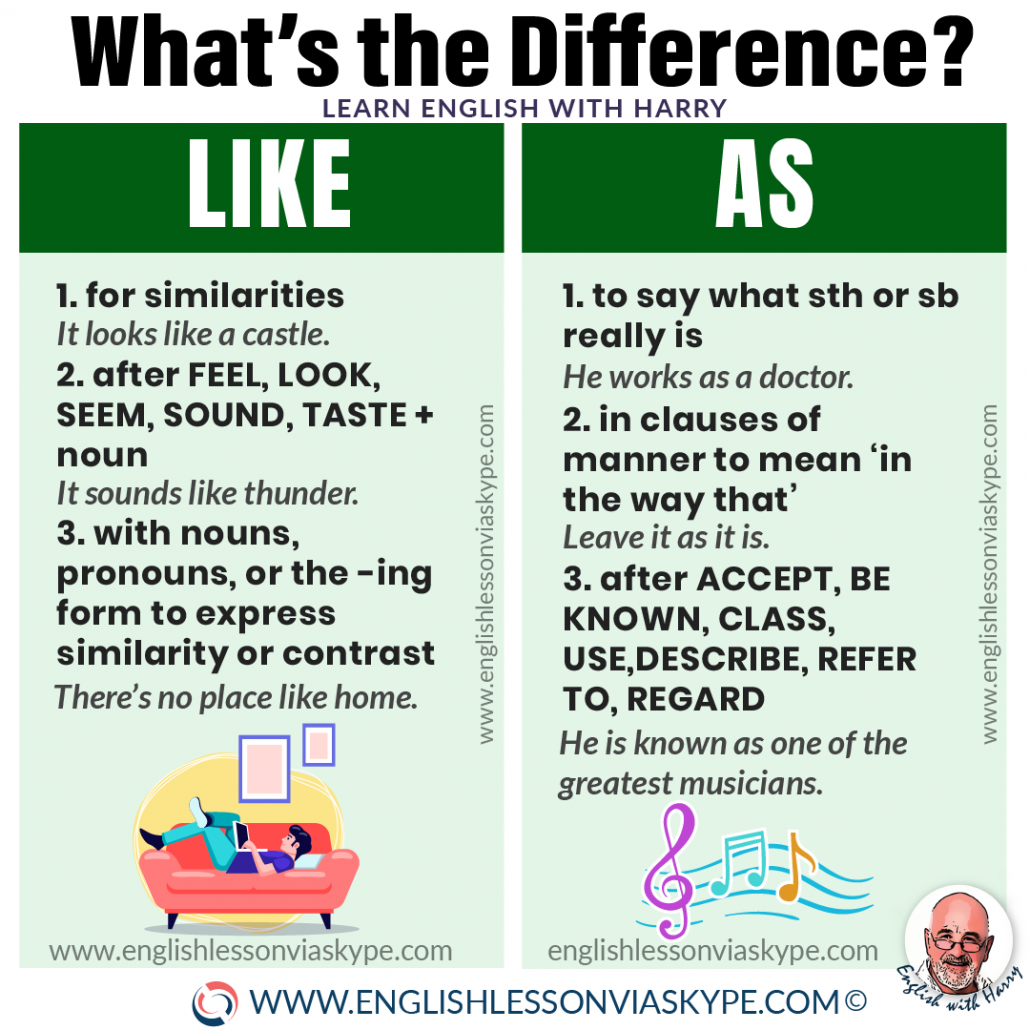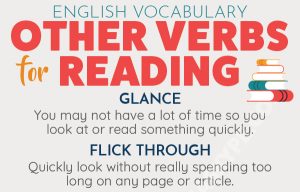Difference between Like and As is one of the common mistakes made by ESL students. So if you’re planning to take English proficiency tests in the near future, you will find this post useful.
You can either watch a short video lesson or scroll down and read the transcript below.
There is also a short quiz at the end to help you better remember the difference between Like and As.
Table of Contents
Harry
Difference between Like and As
Hi there and welcome to this video and our Channel.
This is Harry from englishlessonviaskype.com and you’re really really welcome.
Today we’re going to talk about the difference between LIKE and AS.
They often get confused, so hopefully by the end of this video you’ll understand the differences and how to use them a little better.
And as always, I’ll give you some examples as we go through it.
Intermediate to Advanced English Marathon

INSANITY: doing the same thing over and over again and expecting different results.
Albert Einstein
- What you'll learn:
- better understanding of more complex grammar structures
- advanced English vocabulary words
- British & American slang
- perfect your listening skills through practing different accents
- This marathon is for you if you're:
- stuck at an intermediate English level
- tired of confusing explanations
- a mature student
- shy & introverted
How to use Like
We’re using LIKE when we’re talking about something that is similar to or the same as. Okay. Often we use it when we’re comparing people. Okay.
📌 This boy, he is like his father.
📌 He is like his grandfather.
📌 He is like his older brother.
So he is similar to them or the same as them in terms of perhaps his stature, his build, his looks, his characteristics.
He’s not exactly the same, of course, but he just looks like or acts like or behaves like them.
Somebody lives in an amazing house. Big, grand, spacious.
📌 Oh this house is like a castle.
It’s not literally or exactly a castle. It doesn’t have parapets and a drawbridge, of course. But it’s big and it’s spacious and expensive so somebody can say:
📌 Wow, what a house! It looks like a castle.
Okay. So when we’re using like we don’t mean it’s exactly the same. We’re using it as an example of an exaggeration and it’s just to give it some sort of emphasis. Okay.
For example, if we’re going to a disco and we’re going for dance on the floor and we say to our friends:
📌 Be really careful, that floor is very slippery. It’s like dancing on ice.
Now, you’re not literally dancing on ice but the floor slippery so your legs are going in all directions so it’s like dancing on ice.
You look out the window and the weather is really cold. For example, this morning when I woke up it was actually snowing and it’s the 14th of April and snowing. I said:
📌 Wow, I hate weather like this!
Meaning cold, not so so warm, a little dark, overcast, particularly at a time of the year when you’re expecting warmer weather. Ok.
So when we use LIKE it’s as a preposition, it’s always followed by a noun so that’s one way you will recognise it.
📌 It’s like a castle.
📌 Like dancing on ice.
Always followed by a noun. Okay.
📌 He’s like his father.
📌 He is like his grandfather.
Difference between Like and As

Share and help other students to improve English skills
How to use As
When we use AS we usually use it before the subject and a verb. So this is how you will recognise AS.
For example:
📌 Please leave everything as it was.
It is the subject. Was is the verb.
📌 Please do it as I showed you.
So if you’re helping somebody at work and they’re looking for some help and you help them for example with their spreadsheet you’ll say:
📌 Please do it as I have showed you.
So I is the subject. Have showed is the verb.
So immediately you can recognise when you use AS.
Difference between Like and As
When we want to use AS also as a preposition? Well, we usually use it when we’re talking about real things.
📌 So he worked during the summer as a laborer.
Ok. So it’s exactly that that’s the work he had. He worked as a laborer.
📌 He worked as a sales assistant in the garage.
Exactly the job he had as a sales assistant in the garage.
📌 When he left university he worked as a doctor in the medical centre.
So as a doctor. That was literally his job.
📌 He worked as a teacher.
As a teacher, as a banker, so always using asto describe exactly what they did and it’s very relevant when we we talk about people’s work.
Okay. It’s important to understand those differences.
So LIKE similar to the SAME AS always followed by a noun.
And then when we’re using AS it is always followed by subject and the verb.
And when we’re talking about the preposition, usually we’re telling people exactly what it is.
So LIKE it’s similar to but obviously not the same.
Like a castle – so there’s a slight exaggeration there.
But as a waiter, as a doctor then there are no exaggerations, exactly the way it was intended.
Okay. So that’s to describe the difference between like and as.
And hopefully you’ve got an understanding how to recognise them and how to use them.
We would really love it if youcan join us on www.englishlessonviaskype.com and as always please subscribe to our Channel.
Make sure you hit the bell that they the notification button because this in this way you will be notified when there’s a new video waiting for you.
We have six online English language courses.
Yes, six English language courses waiting for you thereand there’s a discount coupon in the description below so you’ll be able to find something that suits you and this includes the most recent course that we’ve launched.
Which is 73 Common Mistakes that people make in learning English. This is really helpful for you.
Thanks again for watching and join us again soon.
Difference between Like and As
Take an interactive quiz
Difference between Like and As

Share and help other students to improve English skills
How to use As
When we use AS we usually use it before the subject and a verb. So this is how you will recognise AS.
For example:
📌 Please leave everything as it was.
It is the subject. Was is the verb.
📌 Please do it as I showed you.
So if you’re helping somebody at work and they’re looking for some help and you help them for example with their spreadsheet you’ll say:
📌 Please do it as I have showed you.
So I is the subject. Have showed is the verb.
So immediately you can recognise when you use AS.
More Information
For more information on English Phrasal Verbs, English collocations and English idiomatic expressions, check out the following links:
Travel Phrasal Verbs in English
English Collocations related to Health
10 More Idioms related to Weather
You will love these English lessons

Learning English Christmas Vocabulary
With Christmas only around the corner, learning English Christmas vocabulary may not be on your priority list. We are all


5 English Verbs To Describe Reading
Here you will learn 5 English verbs that you can use instead of READ and 6 book English idioms. Not


20 Common Mistakes In English
Learn 20 common mistakes in English and how to QUICKLY correct them! By the end of this lesson, you’ll have